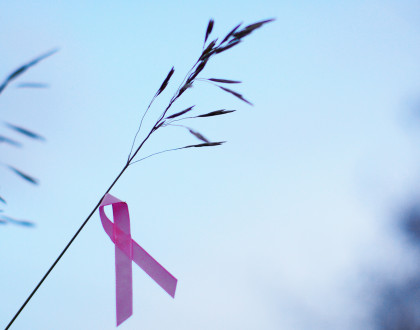Breast Health on the Line

Despite the confusion prompted by the U.S. Preventative Services Task Force earlier this year, research has consistently shown that regular and consistent mammogram screenings remain the best current line of defense for catching breast cancer early. And although major medical organizations recommend regular mammograms for women age 40 and over, not all women are screened regularly and black women continue to die of breast cancer at higher rates.
But, why? While some research suggests that the types of breast cancer that victimize women of color, are more virulent, other studies show that women of color and lower income women have higher mortality rates due to intrinsic health disparities and cultural disconnects: such women are often the caregivers of their families and put the health of their children and families before themselves, pushing off their own health needs. Other barriers include lack of health insurance, transportation or child care, poor patient-doctor communications and/or language barriers, lack of information, negative experiences or beliefs of the medical system, fear, and cultural or religious beliefs. Women lead busy, stressful lives, and breast health usually just isn’t a priority. Until it’s too late.
Faced with staggering mortality data and promising research suggesting consistent reminder calls can significantly increase the rate at which women get regular mammograms, YWCA Boston and its numerous health sector collaborators have recommitted themselves to tackling these disparities and increasing screening rates.
Last week, Whittier Community Health Center and YWCA Boston launched a joint-project to that just that:
YWCA Boston staff, members of its Spirit-Wise Sisters breast cancer support group and 7 YW volunteers teamed up with Whittier staff to reach out to more than 280 women who had lapsed on their mammograms from more than 2 years.
Through YWCA Boston and Whittier’s combined resources, the group placed phone calls to remind women in their native languages (English, Spanish, Somali and Haitian Creole) to make an appointment for their long-overdue mammogram.
The result was inspiring: In less than 90 minutes, more than 30 appointments were scheduled on the spot and more than 15 women were scheduled for follow up calls or referrals to other health centers.
Most importantly, more than a hundred women were educated on the importance of their breast health, bilingual volunteers were able to connect to women in their native tongue, and breast cancer survivors were able to share their strength with those who expressed fear about mammography.
Susan G. Komen for the Cure Massachusetts Director of Community Initiatives Jeanette Beltran, who participated in this Komen-sponsored event summed up the night aptly: “As a person making the calls, it reaffirmed that we have so much more work to do on educating women across the state on the importance of screening. It is partnerships like this that begin to address the barriers to screening.”
And begin it is. With thousands of Boston women having lapsed in their mammograms in the last year, we have much more work to do. And building on our initial successes, we are more determined than ever to reduce health disparities and make women healthier. Please consider joining us as a volunteer, donor, or both.
